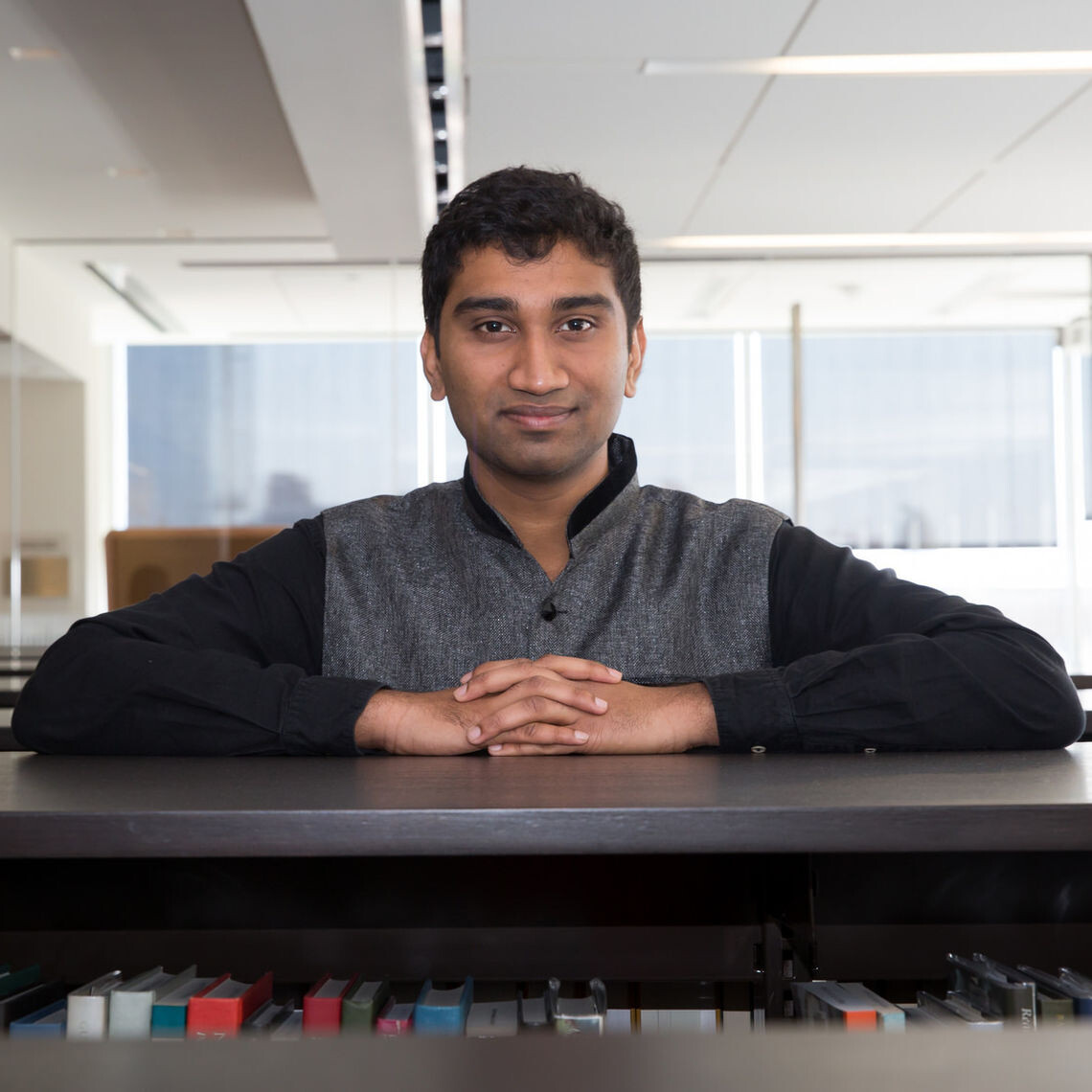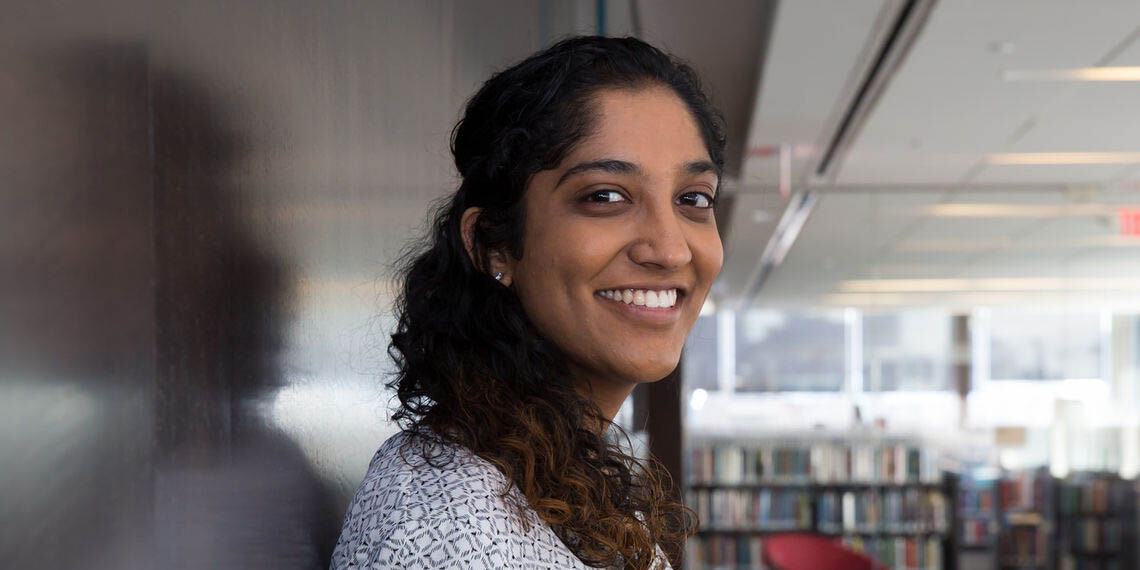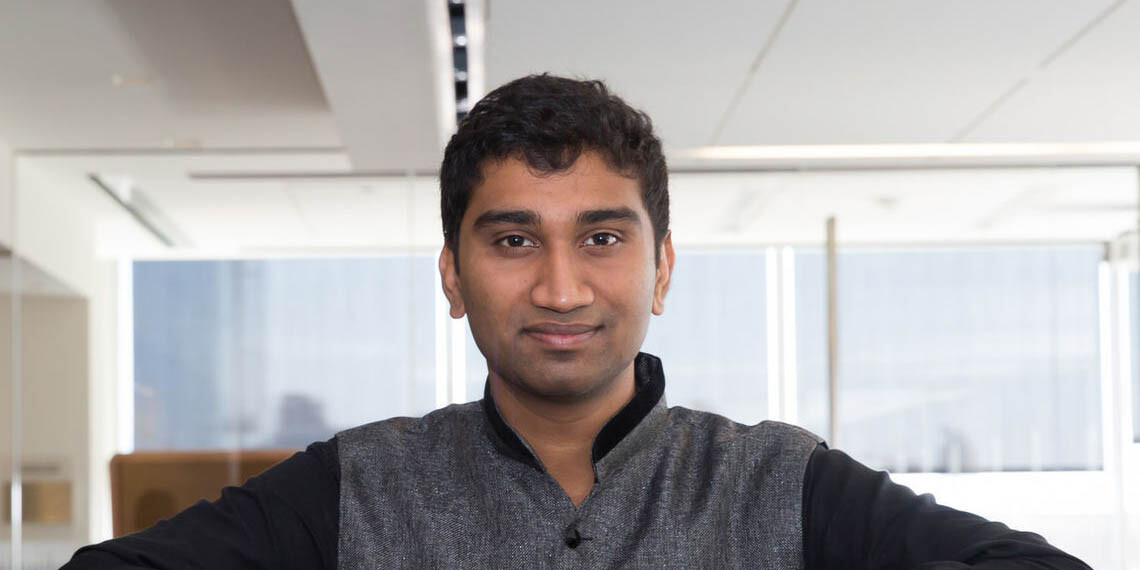With a majority of India’s labor force dependent upon agriculture for a living, crop-damaging diseases, floods, droughts, and pests can imperil the lives of millions.
Vaishak Kumar is hoping to change that.
Kumar, one of three recipients of the 2016 President’s Engagement Prize, is returning to his hometown of Mysore, India, to establish the NESARA Agriculture Extension. Working in partnership with a local NGO, NESARA will utilize cost-efficient technology to educate farmers about cutting-edge agricultural practices and research.
Growing up in Mysore, Kumar observed the plight of Indian farmers firsthand as he watched his grandfather and uncles work the land.
NESARA will set up a low-cost mobile lab in Mysore to teach farmers basic agronomy, the science that looks at agriculture from an integrated, holistic perspective. The project will take place in villages with crops of vegetables, fruits, and staples such as rice.
In helping famers, NESARA will utilize a ubiquitous technology: cell phones.
Kumar plans to equip certain members of farming communities with smart phones so that they can send scientists photos of their crops from different angles. An image of a rotten leaf, for example, could be sent to a crop scientist, who could determine what’s wrong and explain through a text message or phone conversation how to treat the plant. Instead of waiting for the entire crop to die, the farmer could take action based on the diagnosis.
“Because cell phones in India are cheap, even poor families have them,” Kumar says. “We will be sending them timely alerts about the weather and certain stages of the agricultural cycle and provide them with information that goes with the reminders.”
Kumar learned about global economies during a stint as an intern at the Institut de Relations Internationales et Stratégiques (IRIS) in Paris, and as a research assistant in Penn’s Think Tanks and Civil Societies Program. The most invaluable insights he gained, he says, came from talks with his project mentor, Devesh Kapur.
“Through conversations with Vaishak, I learned that he already knew a good bit about agriculture, which is very rare in an Ivy League school,” says Kapur, Director of the Center for the Advanced Study of India and the Madan Lal Sobti Professor for the Study of Contemporary India. “What Vaishak’s project tries to do is really link the farmer to new, beneficial technologies.”
If NESARA is successful, Kumar says, he will try to export the model to other Indian states that are in need.
Armed with a big vision, a Penn education, and the support of the President’s Engagement Prize, Kumar says that returning to his hometown after graduation was a no-brainer.
“The decision to give back to my community was not a hard one,” says Kumar. “I’ve always known that’s what I want to do. Where else to start but home?”



